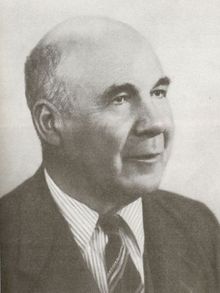Bill Ferguson (1882 – 1950) aboriginal leader
 Bill Ferguson stood tall, with a calm and reliable manner, and his strong Presbyterian faith supported his pride in Aboriginal people In 1949 he went to lobby the national Chifley Labor government in Canberra as a representative of the Australian Aborigines’ League, asking for many administrative reforms, which he had drafted.
Bill Ferguson stood tall, with a calm and reliable manner, and his strong Presbyterian faith supported his pride in Aboriginal people In 1949 he went to lobby the national Chifley Labor government in Canberra as a representative of the Australian Aborigines’ League, asking for many administrative reforms, which he had drafted.
Bill Ferguson was born at Darlington Point, Waddai, New South Wales, and worked as a shearer, labourer and mailman in the west of the State. His first political involvements were as an organiser of shearers for the Australian Workers’ Union and then secretary of a local branch of the Australian Labor Party. From 1933 he lived at Dubbo with his wife and children.
While he had lived outside of the system of ‘protection’ of Aborigines, he was well aware of the conditions under which other Aboriginal people lived. From 1936, when parliament amended the Aborigines Protection Act (1909) to increase its powers to govern Aboriginal people’s lives, he began speaking and lobbying for civil rights. He launched the Aborigines Progressive Association (APA) at Dubbo in 1937 and was a witness before the Legislative Assembly’s select committee on the administration of the Aborigines Protection Act (which failed to initiate any reform). With William Cooper and John Patten, he organised a Day of Mourning for Aboriginals on Australia Day 1938. Aborigines Claim Citizen Rights! was the pamphlet that he wrote with Patten to promote their cause. He organised five APA conferences in country towns from 1938. He also was elected a member of the Aborigines Welfare Board, after the government responded to APA criticism by deciding to have two Aboriginal people on the board. While on the board he was shocked by the complaints received about conditions in Aboriginal reserves, and attempted to force some changes.
http://en.wikipedia.org/wiki/William_Ferguson_(Australian_Aboriginal_leader)
By February 1949, Ferguson was vice-president of the New South Wales branch of the Australian Aborigines’ League, a national body with Onus as president. In June it sent a deputation to Canberra, asking for many administrative reforms drafted by Ferguson. Ben Chifley’s minister for the interior, Herbert Johnson, was unresponsive; Ferguson, furious, left for Sydney intending to stand for parliament. Both political parties, he felt, ignored Aboriginal welfare; resigning from the Labor Party, he stood as Independent for Lawson, the Dubbo seat, in the December elections. The United Nations Declaration of Human Rights inspired his policy of civil rights for all people; but he won only 388 votes. He collapsed after his final speech, and died of hypertensive heart disease on 4 January 1950 in Dubbo Base Hospital.
Ferguson habitually checked his facts with reserve residents before attacking official policies on land, housing and control, and he inspired young Aborigines to take up politics. The A.P.A. resolutions, mostly Ferguson’s work, were ahead of their time. He stood tall, with a calm and reliable manner, and his strong Presbyterian faith supported his pride in Aboriginal people.
http://adb.anu.edu.au/biography/ferguson-william-bill-6160
also
http://tracker.org.au/2011/06/on-a-mission/
———-‐-
Bill Ferguson fought for aboriginal rights
Listen to the story of Bill Ferguson. He was an Australian aborigine who was a practising Christian and who fought for civil rights for his aboriginal people. Broadcast on Songs of Hope on Southern FM 88.3 at 8:30 on Sunday 16 June 2013. Narrated by Rodney Carr. Duration 5 minutes. Press play to listen or download.
https://worldshapers883fm.wordpress.com/2013/06/16/bill-ferguson-fought-for-aboriginal-rights/
————–
Influential Australian aboriginal Christians
https://atributetoaustralianchristians.wordpress.com/2010/12/14/influential-australian-aboriginal-christians/
_______
Leave a Reply, comments are welcome.